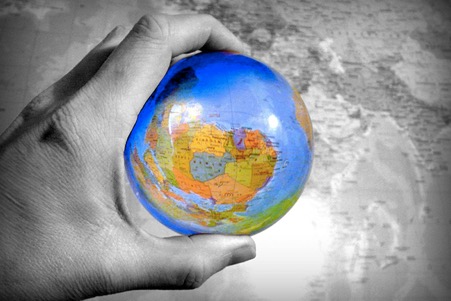Article

In Naked Diplomacy, a former ambassador looks at how to navigate the new world order - providing insight for global businesses too.
Some things change, some stay the same. This lucid, challenging and entertaining book argues that the context in which diplomacy is operating is changing profoundly, but the thing itself - in essence, the resolution of conflict by peaceful means - has never been more important.It is told from Tom Fletcher's unique vantage point, as close adviser to three prime ministers (Blair, Brown and Cameron) and then the UK's youngest ever ambassador, in the powder keg of Lebanon.
As well as serious food for thought, this experience gave him great stories: turning down the offer of a buttock lift in Beirut as it exceeded the diplomatic gift limit of £140; the book he got world leaders to write in for his baby son, Charlie, as compensation for spending so much time away from home (Obama wrote Charlie would be rich or clever, depending on whether he chose to sell or read it); the mixture of giggles and puzzlement on the faces of Asian interlocutors at prime ministerial talks when 'prime minister's private secretary for foreign affairs' was translated as 'intimate secretary for the prime minister's affairs overseas' - to mention just a few.
Fletcher starts his brief history of diplomacy with an eponymous but short caveman, Ug, who persuaded taller cavemen to collaborate with him to provide the time and space for progress rather than war. He reminds us that Attila the Hun said 'it is never wise to gain by battle what may be gained through bloodless negotiations'. Wars are expensive and inimical to progress.
The relative peace in Europe in the century after the Congress of Vienna of 1815 allowed powers to enrich themselves through building empires abroad and industrialisation at home (albeit at the expense of creating, long term, the conditions of conflict elsewhere). But the technology that has brought us closer together in our global village has not made us nicer to each other as ISIL, Somalia and other conflicts testify. We still need diplomacy and it can still work.
Fletcher recalls: 'I recently met an Englishwoman who was working on sharing the lessons of reconciliation. I asked her how she had become involved. She said that her father had been killed in the IRA terrorist attack on the Grand Hotel in Brighton in 1984. I turned to the man next to her, with whom she had travelled and would shortly share a platform, and asked him what his story was. He paused briefly before replying, "I was the bomber."'
So much for what has not changed. Fletcher identifies four trends transforming the diplomatic environment: the erosion of US hegemony and a shift to a period without a lead nation; the collapse, perhaps rapid, of the 20th-century world order; the increased influence of non-state actors and new elites; and the technological empowerment of individuals. This is a far more fluid context for the diplomat.
New technology brings big challenges for a profession not noted for its proficiency in it: the closed shop in provision of information from faraway places has been blown open by 24/7 news coverage, Facebook and Twitter, just as Uber has blown up the Black Cab closed shop. We have a free market in foreign policy advice in which diplomats have to compete.
Technology brings big opportunities for diplomats too. In this new world, it is the responsibility of diplomats to represent peoples to peoples not just governments to governments. And technology gives diplomats, like everyone else, huge reach. Fletcher talks about his engagement with Hezbollah and Syrian government supporters on Twitter. He recalls tweeting a picture of himself donating blood after an attack on the Iranian Embassy in Beirut, and being retweeted by President Rouhani and hundreds of Iranians.
My own diplomatic experience bears this out. I suspect that my telling an audience of surprised young women in a conservative part of Turkey that they could wear headscarves at university in the UK (something that was impossible in Turkey at that time), which was tweeted and retweeted multiple times, did more for UK/Turkey relations with a generation we need to reach than the many hours in smoke-filled rooms negotiating chapters for Turkey's EU accession.
What we don't know yet is if this new type of diplomacy will have a lasting impact. The world of digital empowerment is also one of disengagement and hostility to globalisation. But we'd be mad not to try. This is a powerful book, relevant not just to those interested in foreign policy, but to all those helping large, established organisations - political, business, media - adjust to an uncertain, changing world. As Hillary Clinton's adviser, Alec Ross, says: 'The 21st century is a terrible time to be a control freak.'
Nick Baird is group corporate affairs director of Centrica. He was previously director general in the Foreign and Commonwealth Office and British ambassador to Turkey
Photo credit: Judy van der Velden/Flickr globe

